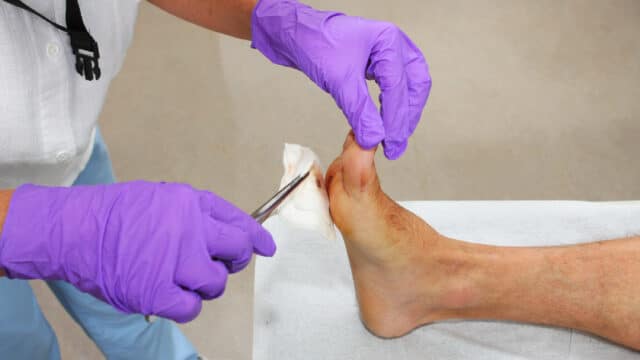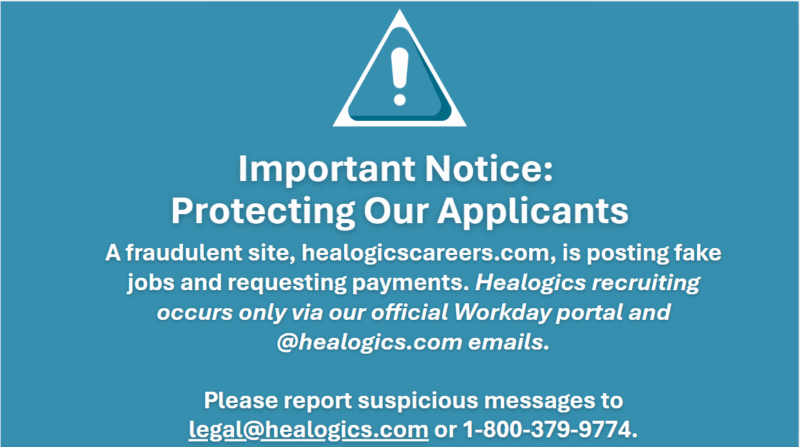The Impact of High Cholesterol on Wound Healing

September is National Cholesterol Education Month and a great time to have your cholesterol tested to learn more about how it affects your health. Cholesterol is a necessary type of fat in your blood to stay healthy. Genetics and diet both determine the amount and type of cholesterol in your blood but when too much is present, it can lead to serious health problems.
What is Cholesterol?
There are two types of cholesterol: low-density lipoprotein (LDL), also known as “bad” cholesterol, and high-density lipoprotein (HDL) or “good” cholesterol. Too much LDL cholesterol is bad because it can create blockages in our blood vessels, restricting blood flow. HDL cholesterol is good because it binds to excess bad cholesterol in our blood, bringing it to our liver to be eliminated as waste. Maintaining a healthy balance between LDL and HDL cholesterol is crucial for overall health and proper wound healing.
Healthy Living
Lifestyle changes can lower bad cholesterol and raise good cholesterol levels.
- Exercise. Physical activity, even moderate-intensity walking, will raise HDL levels. Regular exercise also improves circulation, which is essential for delivering oxygen and nutrients to wounds.
- Quit smoking. Smoking has many adverse effects including lowering HDL and raising LDL levels.
- Reduce stress. Schedule time for activities you enjoy to help you relax. Stress can negatively impact cholesterol levels and overall health, so finding ways to manage stress is important for wound healing.
- Sleep well. Make a good night’s sleep a priority—aim for seven to nine hours a night.
- See your doctor. Get regular screenings for cholesterol, blood pressure and diabetes. Monitoring and managing these conditions can help prevent complications that may impair wound healing.
Healthy Diets
Incorporate low cholesterol recipes and heart-healthy foods into your diet routine. It’s recommended to avoid foods with trans fats. Instead, choose foods that are high in fiber and healthy fats such as:
- Avocados, olive oil, almonds and many other nuts are rich in monosaturated fats. These healthy fats can help lower LDL cholesterol and improve heart health.
- Fresh fruits and vegetables contain soluble and insoluble fiber. Fiber helps reduce cholesterol absorption in the intestines and promotes overall digestive health.
- Oatmeal, barley and beans are high in soluble fiber. Soluble fiber binds to cholesterol in the digestive tract, helping to remove it from the body.
- Salmon, tuna and trout are full of omega-3 fatty acids. Omega-3 fatty acids have anti-inflammatory properties that can help support wound healing.
Heart Health Affects Healing
Heart health is important to our overall wellness. Our heart circulates blood throughout our bodies, delivering oxygen and nutrients to every living cell. High cholesterol and heart disease diminish this flow, greatly compromising our body’s ability to heal. When cholesterol levels are high, it can lead to the buildup of plaque in the arteries, reducing blood flow and oxygen delivery to wounds.
Oxygen-rich blood has a vital role in our immune system’s response to injuries. Our heart and vascular system are essential for delivering blood to injured tissue. In fact, our body’s ability to heal a wound can increase or decrease based on the amount of oxygen in our blood plasma. If blood flow is hindered or restricted by heart disease, the oxygen necessary for healing does not reach the wound. This is why managing cholesterol levels and maintaining a healthy cardiovascular system is crucial for optimal wound healing.
Healogics helps patients with chronic wounds heal faster. Over the past 30 years, we have helped to heal more than four million wounds. We have partnerships with academic and research-based scientists to consult and analyze, driving collaboration to provide better outcomes for our patients. Our team of wound care providers understands the connection between high cholesterol and wound healing, and we work with patients to develop personalized treatment plans that address both their wound care needs and overall health.
If you or someone you care for has a wound that is not healing, find a Center near you today. At Healogics, we are committed to helping patients achieve optimal wound healing by addressing underlying health conditions, such as high cholesterol, that may impede the healing process.


